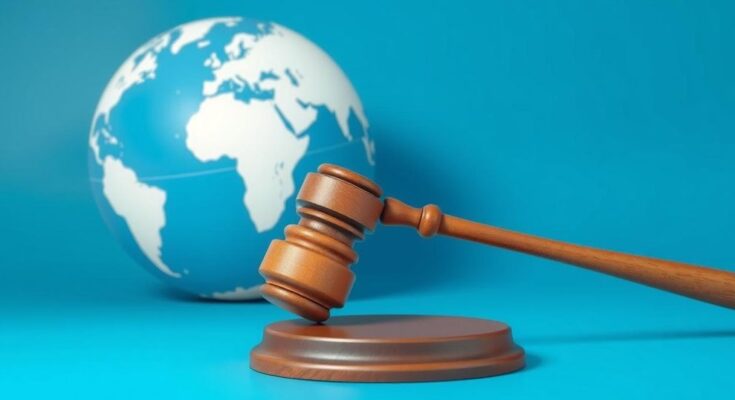Rodrigo Duterte was arrested following an I.C.C. warrant on charges of crimes against humanity. The I.C.C. claims jurisdiction due to the timeline of the accusations, while Duterte’s legal team argues the arrest is illegal after the Philippines exited the court. This situation tests the I.C.C.’s authority amidst jurisdictional questions.
Rodrigo Duterte, the former president of the Philippines, was arrested following an arrest warrant issued by the International Criminal Court (I.C.C.) that accused him of crimes against humanity. This development raises significant questions regarding jurisdiction, as the matter unfolds amidst scrutiny over the I.C.C.’s legal reach in addressing issues of genocide, war crimes, and other serious offenses.
In 2018, the I.C.C. announced it was opening an investigation into Mr. Duterte’s actions during his controversial crackdown on drugs. Human rights organizations have reported that approximately 30,000 individuals lost their lives during this anti-drug campaign, many of whom were allegedly killed by law enforcement or vigilantes. Activists have highlighted that numerous victims were minors or not involved in drug-related activities.
The I.C.C. operates under the governance of the Rome Statute, which is a treaty endorsed by 125 countries. Following the announcement of the inquiry, Mr. Duterte declared the Philippines would withdraw from the statute and the country formally exited the court in March 2019. In response to the arrest, Mr. Duterte’s legal counsel has contended that the warrant is illegal due to the Philippines’ non-member status. However, a panel of I.C.C. judges referenced the timeline of the accusations, asserting jurisdiction based on the fact that the alleged crimes occurred while the Philippines was still a signatory of the treaty.
The arrest of Rodrigo Duterte by the Filipino authorities highlights the complexities surrounding international law and jurisdiction. While the I.C.C. has asserted its authority to prosecute based on historical membership, Mr. Duterte’s withdrawal from the Rome Statute prompts legal debate over the I.C.C.’s jurisdiction. This situation underscores the ongoing challenges facing international justice mechanisms in addressing alleged crimes against humanity.
Original Source: www.nytimes.com




